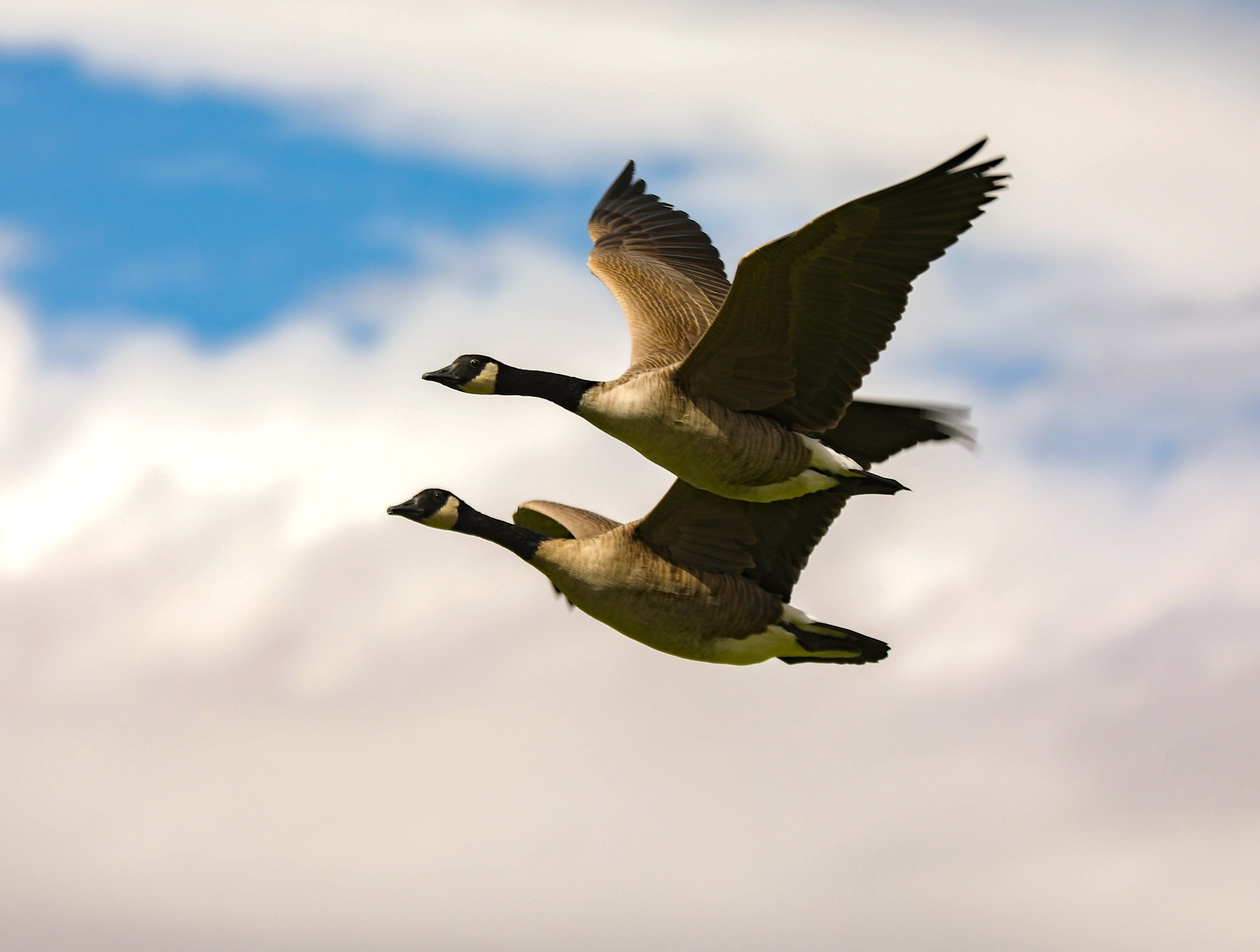HPAI Update: More positives detected in Mississippi, Louisiana birds
Published 12:24 pm Wednesday, December 21, 2022

- A pair of Canada Geese fly through the air. Photo courtesy of Catherine Harris / USFWS
|
Getting your Trinity Audio player ready...
|
BROOKHAVEN — US Department of Agriculture Animal Plant Health Inspection Service confirmed additional positives of Highly Pathogenic Avian Influenza (HPAI) this week. One more positive was found in Mississippi and six additional positives were found in Louisiana.
Mississippi to date has detected 112 cases of HPAI while Louisiana has 54 detections. The latest detection in Mississippi was a wild Canada Goose which was found dead.
Louisiana’s positives include a snow goose in Calcasieu Parish, snow goose in Ouachita, three snow geese and a Ross’s goose in Richland Parish and two snow geese and a Ross’s goose in Morehouse Parish. All of Louisiana’s positives were submitted through the Louisiana Department of Wildlife and Fisheries and the Southeastern Cooperative Wildlife Disease Study as being found dead.
HPAI is highly contagious and can be deadly to both wild birds and poultry. Mississippi had one deadly outbreak of HPAI in a commercial broiler in Lawrence County where 34,400 birds were impacted by the disease. The Center for Disease Control reports ducks can be infected and yet show no signs of the disease.
Mississippi Department of Wildlife and Fisheries Small Game Biologist Rick Hamrick said it is possible quail could catch HPAI but it would be hard to detect.
“It’s uncertain how significant it could potentially be at a population level,” he said. “It may also be harder to identify cases in those birds that aren’t as highly visible, but to this point it hasn’t seemed to be a major problem for quail.”
HPAI symptoms seen in Canada Geese include swimming in circles, twisted necks and tremors. APHIS states some raptor species appear to be vulnerable to HPAI. It is a disease spread by oral and fecal secretions into the environment. More cases could be detected as waterfowl continue to migrate.
Here are safety precautions hunters can take
Waterfowl Hunters:
- Only harvest birds that act and look healthy.
- Do not eat, drink, or smoke while handling harvested birds.
- Process harvested birds outdoors or in a well-ventilated area.
- Wear disposable gloves while processing harvested birds.
- Wash hands, utensils, and work surfaces before and after processing birds, as well as before and after handling uncooked meat.
- Keep harvested birds cool until processed, then refrigerate, freeze, or cook to an internal temperature of 165 degrees.
Disposing of bird carcasses:
- Dead birds should not be handled with bare hands. Maintain a physical barrier.
- To collect or remove dead birds from the environment:
- Pick up the bird with doubled plastic bags that have been turned inside out.
- Then, invert and seal the doubled plastic bag with the bird inside.
- To dispose of the bird:
- Place the bag in household garbage.
- As an alternative, bury the dead bird (no bag) by handling the bird with a shovel.
- Wash hands thoroughly with soap and water.




